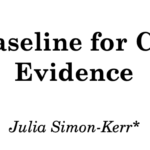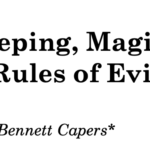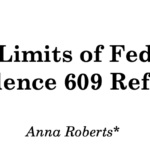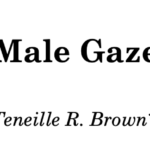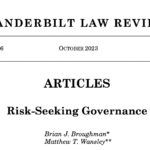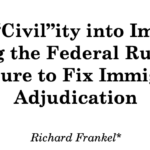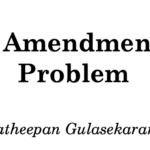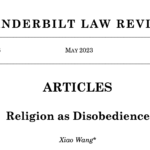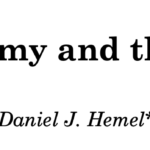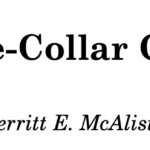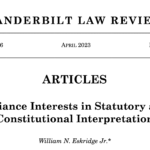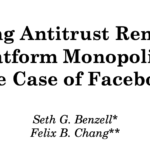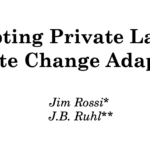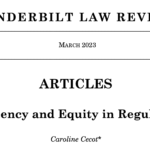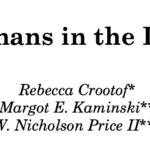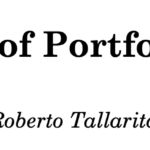Articles Category
A New Baseline for Character Evidence
Nov. 27, 2023—Julia Simon-Kerr | 76 Vand. L. Rev. 1827 Perhaps no rules of evidence are as contested as the rules governing character evidence. To ward off the danger of a fact finder’s mistaking evidence of character for evidence of action, the rules exclude much contextual information about the people at the center of the proceeding. This...
Race, Gatekeeping, Magical Words, and the Rules of Evidence
Nov. 27, 2023—Bennett Capers | 76 Vand. L. Rev. 1855 Although it might not be apparent from the Federal Rules of Evidence themselves, or the common law that preceded them, there is a long history in this country of tying evidence—what is deemed relevant, what is deemed trustworthy—to race. And increasingly, evidence scholars are excavating that history....
Models and Limits of Federal Rule of Evidence 609 Reform
Nov. 27, 2023—Anna Roberts | 76 Vand. L. Rev 1879 A Symposium focusing on Reimagining the Rules of Evidence at 50 makes one turn to the federal rule that governs one’s designated topic—prior conviction impeachment—and think about how that rule could be altered. Part I of this Article does just that, drawing inspiration from state models to...
Shifting the Male Gaze of Evidence
Nov. 27, 2023—Teneille R. Brown | 76 Vand. L. Rev. 1903 The Federal Rules of Evidence are a product of their time. They reflect not only the thinking of the 1970s when they were adopted but also the much older English common law on which many Rules were based. It should therefore come as no surprise that...
Risk-Seeking Governance
Oct. 6, 2023—Brian J. Broughman & Matthew T. Wansley | 76 Vand. L. Rev. 1299 Venture capitalists (“VCs”) are increasingly abandoning their traditional role as monitors of their portfolio companies. They are giving startup founders more equity and control and promising not to replace them with outside executives. At the same time, startups are taking unprecedented risks—defying...
Bringing “Civil”ity into Immigration Law: Using the Federal Rules of Civil Procedure to Fix Immigration Adjudication
Oct. 6, 2023—Richard Frankel | 76 Vand. L. Rev. 1379 Government lawyers frequently argue, and courts have frequently held, that noncitizens in removal proceedings do not have the same rights as defendants in criminal proceedings. A common argument made to support this position is that removal proceedings are civil matters. Accordingly, a noncitizen facing deportation has fewer...
The Second Amendment’s “People” Problem
Oct. 6, 2023—Pratheepan Gulasekaram | 76 Vand. L. Rev. 1437 The Second Amendment has a “people” problem. In 2008, District of Columbia v. Heller expanded the scope of the Second Amendment, grounding it in an individualized right of self-protection. At the same time, Heller’s rhetoric limited “the people” of the Second Amendment to “law-abiding citizens.” In 2022,...
Religion as Disobedience
May. 31, 2023—Xiao Wang | 76 Vand. L. Rev. 999 Religion today offers plaintiffs a ready path to disobey laws without consequence. Examples of such disobedience abound. In the past few years alone, courts have enjoined vaccine mandates, invalidated stay-at-home orders, and set aside antidiscrimination laws protecting same-sex couples. During the 2021–2022 Term, plaintiffs relied once again...
Polysemy and the Law
May. 31, 2023—Daniel J. Hemel | 76 Vand. L. Rev. 1067 Polysemy—the existence of multiple related meanings for the same word or phrase—is a frequent phenomenon in legal and lay language. Although polysemy sometimes arises by accident, it also can be strategic: framers of legal rules can advance private and public interests by assigning meanings to terms...
White-Collar Courts
May. 31, 2023—Merritt E. McAlister | 76 Vand. L. Rev. 1155 Article III courts are white-collar courts. They are, scholars have said, “special.” They sit atop the judicial hierarchy, and they are the courts of the one percent. We inculcate that sense of specialness in a variety of ways: federal courts are courts of limited jurisdiction; they...
Reliance Interests in Statutory and Constitutional Interpretation
Apr. 26, 2023—William N. Eskridge Jr. | 76 Vand. L. Rev. 681 People and companies rely on public law when they plan their activities; society relies on legal entitlements when it adapts to new technology, economic conditions, and social groups; legislators, administrators, and judges rely on settled law when they pass, implement, and interpret statutes (respectively). Such...
Evaluating Antitrust Remedies for Platform Monopolies: The Case of Facebook
Apr. 26, 2023—Seth G. Benzell & Felix B. Chang | 76 Vand. L. Rev. 773 This Article advances a framework to assess antitrust remedies and policy interventions for platform monopolies. As prosecutors and regulators barrel forward against digital platforms, soon it will fall upon courts and administrative agencies to devise remedies. We argue that any sensible solution...
Adapting Private Law for Climate Change Adaptation
Apr. 26, 2023—Jim Rossi & J.B. Ruhl | 76 Vand. L. Rev. 827 | The private law of torts, property, and contracts will and should play an important role in resolving disputes regarding how private individuals and entities respond to and manage the harms of climate change that cannot be avoided through mitigation (known in climate change...
Efficiency and Equity in Regulation
Mar. 28, 2023—Caroline Cecot | 76 Vand. L. Rev. 361 The Biden Administration has signaled an interest in ensuring that regulations appropriately benefit vulnerable and disadvantaged communities. Prior presidential administrations since at least the Reagan Administration have focused on ensuring that regulations are efficient, maximizing the net benefits to society as a whole, without considering who benefits...
Humans in the Loop
Mar. 28, 2023—Rebecca Crootof, Margot E. Kaminski & W. Nicholson Price II | 76 Vand. L. Rev. 429 From lethal drones to cancer diagnostics, humans are increasingly working with complex and artificially intelligent algorithms to make decisions which affect human lives, raising questions about how best to regulate these “human-in-the-loop” systems. We make four contributions to the...
The Limits of Portfolio Primacy
Mar. 28, 2023—Roberto Tallarita | 76 Vand. L. Rev. 511 According to the “portfolio primacy” theory, large asset managers, and in particular large index funds, can and will undertake the role of “climate stewards” and will push corporations to reduce their carbon footprint. This theory is based on the view that index fund portfolios mirror the entire...
